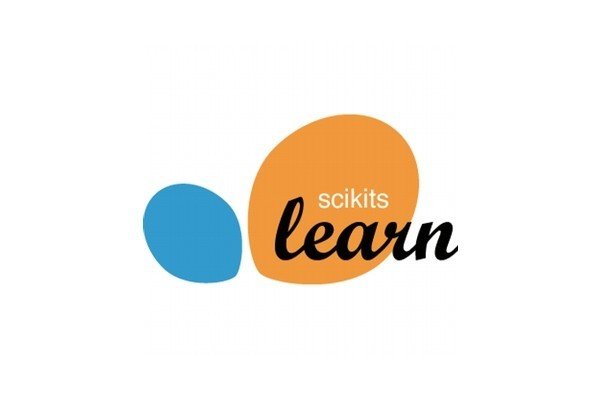ML Model Tracking
With Mlflow
Outline
-
Overview of the ML Development challenges
-
How MLflow tackles these challenges
-
MLflow components
-
Demo
-
How to get started
Machine Learning Development is complex
Data Preparation
Training
Deployment
Raw Data
ML Lifecycle
Data Preparation
Training
Deployment
Raw Data
ML Lifecycle








Hyperparameter
tuningScaleHyperparameter
tuningScaleScaleScale
Model
Exchange
Custom ML Platforms
Facebook (Meta) FBLearner, Uber Michelangelo, Google TFX
+ They standardize the dataprep/training/deploy loop
If you work with the platform, you get these
- Limited to a few algorithms and frameworks
- Tied to a company's infrastructure
Can we provide similar benefits in an open manner?
Introducing Mlflow
Open Machine Learning Platform
-
Works with any ML library and language
-
Runs the same way anywhere (e.g any cloud)
-
Designed to be useful for 1 or 1000+ organisations
Mlflow Components

Tracking

Projects

Models
Record and query experiments, code, configs, results...etc
Packaging format for reproducible runs on any platform
General model format that supports diverse deployment tools
Tracking
-
Parameters: Key-value pairs of your code
-
Metrics: Numeric values (can update over time)
-
Source: Training code that ran
-
Version: Version of the training code
-
Artefacts: Files, including data and models
-
Tags and Notes: Any additional information
Tracking






Tracking server
Tracking
import mlflow
with mlflow.start_run():
mlflow.log_param("layers", layers)
mlflow.log_param("alpha", alpha)
# Train Model
mlflow.log_metric("mse", model.mse)
mlflow.log_artefact("plot", model.plot)
mlflow.tensorflow.log_model("model")

Tracking
Record and query experiments, code, configs, results...etc
Tracking Demo
Keras Text Classification Example
Mlflow Components

Tracking

Projects

Models
Record and query experiments, code, configs, results...etc
Packaging format for reproducible runs on any platform
General model format that supports diverse deployment tools

Projects Motivation
Diverse set of training tools
Diverse set of environments
Challenge: ML results are Hard to reproduce

Project spec



Data
Code
config


Local Execution
Remote Execution





Projects
Packaging project for reproducible ML Runs
- Any code folder or github repo
- Optional MLProject file with code spec
Defines dependencies for reproducibility
- Conda (R, Docker etc) can be specified in MLProject
- Reproducible in (almost) every environment
Execution API for running projects
- CLI/Python/Java/R
- Supports local and remote execution

Projects
Example
my_project/
MLProject
conda.yaml
main.py
model.py
...
conda_env: conda.yaml
entry_points:
main:
parameters:
training_data: path
command: |
python main.py {training_data}
Projects
Example
Demo

Tracking

Projects

Models
Record and query experiments, code, configs, results...etc
Packaging format for reproducible runs on any platform
General model format that supports diverse deployment tools

Models Motivation
ML Frameworks
Serving tools







Inference code
Batch and stream scoring


Models Motivation
ML Frameworks
Serving tools







Inference code
Batch and stream scoring


Model format
Flavor 1
Flavor 2
e.g Pytorch
e.g Tensorflow
ML Frameworks



Serving tools




Inference code
Batch and stream scoring

Standard for ML Models
MLFlow Models
Packaging format for ML Models
- Any directory with MLmodel file
Defines dependencies for reproducibility
- Conda environment can be specified in MLmodel configuration
Model creation utilities
- Save models from any framework in MLflow format
Deployment APIs
- CLI / Python/ R/ Java
Example MLflow Model
mlflow.tensorflow.log_model(...)
my_model/
MLmodel
estimator/
saved_model.pb
...
variables/
Example MLflow Model
run_id: 4785fd4c4bb663461
time_created: 2023-06-28T12:34
flavors:
tensorflow:
saved_model_dir: estimator
signature_def_key:predict
python_function:
loader_module:
mlflow.tensorflowmy_model/
MLmodel
estimator/
saved_model.pb
...
variables/
mlflow.tensorflow.log_model(...)
}
}
usable within Tensorflow tools/APIs
usable within any Python tool
MLflow Flavors Example



Model format
Flavor1:
Pyfunc
Flavor2:
Keras

Train a model
mlflow.keras.log_model()
predict = mlflow.pyfunc.load_pyfunc() predict(input_dataframe)
model = mlflow.keras.load_model() model.predict(keras.Input(..))


MLflow Flavors Example




predict = mlflow.pyfunc.load_pyfunc()
predict(input_dataframe)





MLFlow Models Demo
Recap
-
Overview of the ML Development challenges
-
How MLflow tackles these challenges
-
MLflow components
-
Demo
-
How to get started
pip install mlflowConclusion
-
Newer components; Model Registry for Model Management
-
Multi-step project workflows
-
Fluent tracking API for scala and Java
-
Better environment support when loading schemas
-
Improved model input/output schemas